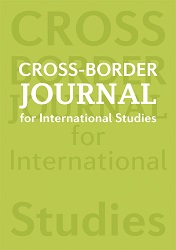The Mechanism of Formation of Statements. Defining Factors in the Process of Hearing of Persons, in particular of the Military Personnel
The Mechanism of Formation of Statements. Defining Factors in the Process of Hearing of Persons, in particular of the Military Personnel
Author(s): Elena-Ana Iancu, Marin Lăzău PăcuraruSubject(s): Security and defense, Military policy
Published by: Editura “Tritonic Books” Bucuresti
Keywords: Hearing; investigation; military; perceptions; sensations; psychological factors;
Summary/Abstract: The article refers, on the one hand, to the general aspects of the process of formation of statements, with an emphasis on elements common to any hearing, irrespective of the standing of the person being heard, and, on the other hand, it highlights the peculiarities of the military hearing process. The defining factors that influence the expression, rendering and use of testimonies in the forensic investigation process are presented, as well as the essential differences between the testimony obtained in spontaneous conversation, as part of a mere dialogue, and that obtained by interrogation, the means of obtaining answers with the highest degree of truthfulness, the influence of the type personality on the categories of testimony. The study highlights peculiarities in the formation of statements by the military, gathered in the “bouquet” of the testimony, the factors that influence sensations and perceptions, corroborated with the typology of temperament, with personal motivation, but also with a series of situational factors (fatigue, tension states, physical conditions, milieu, environmental conditions, etc.). We paid particular attention to the essential differences between free testimony and that resulting from interrogation, finally highlighting some of the means of interest in obtaining the answers with the highest degree of truthfulness, as well as the manner in which the introverted/extraverted personality types determine the testimony process, highlighting the elements of effective communication in an investigation, based on encouraging the “partner” towards dialogue and openness, as a guarantee of effectiveness in the investigation.
Journal: Cross Border Journal for International Studies
- Issue Year: 2/2017
- Issue No: 2
- Page Range: 65-84
- Page Count: 20
- Language: English

